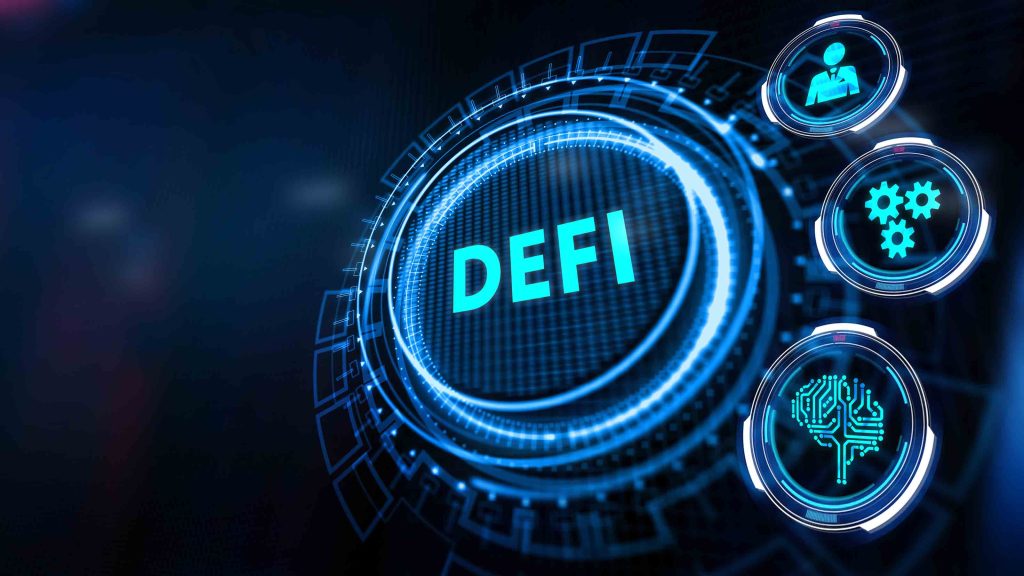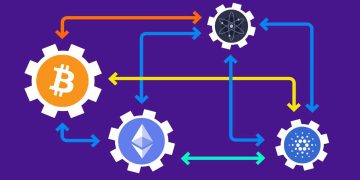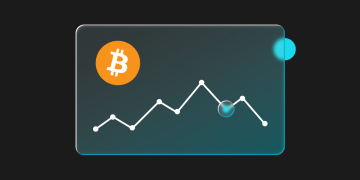Introduction
The rise of Decentralized Finance (DeFi) has been one of the most transformative developments in the blockchain ecosystem. DeFi represents a broad range of financial applications built on blockchain technology that aim to eliminate intermediaries, reduce costs, and offer more transparent and accessible financial services to users globally. However, while DeFi has the potential to revolutionize the financial sector, the success of DeFi protocols is highly dependent on the underlying blockchain infrastructure.
Chain Core, as a cutting-edge blockchain platform, is increasingly seen as one of the key enablers of DeFi protocols. With its advanced features in scalability, speed, security, and interoperability, Chain Core provides the backbone necessary for DeFi platforms to operate seamlessly. This article explores how Chain Core facilitates the development and operation of DeFi protocols, highlighting its features, advantages, and the role it plays in driving the decentralized finance revolution.
1. What is DeFi?
1.1 Definition and Significance
DeFi refers to a collection of financial services, including lending, borrowing, trading, and investing, that are built on blockchain technology without the need for traditional intermediaries such as banks, brokers, or insurance companies. These services are often powered by smart contracts, which automatically execute transactions when predefined conditions are met.
DeFi has grown rapidly in the past few years, with billions of dollars locked in DeFi protocols. The core principles of DeFi include:
- Decentralization: Financial transactions occur directly between users, eliminating intermediaries.
- Openness and Transparency: Anyone can access DeFi protocols, and all transactions are transparent and verifiable on the blockchain.
- Programmability: Financial services are programmable through smart contracts, enabling more customizable and automated financial products.
- Security: Blockchain ensures that data is secure and immutable, providing trust without relying on central authorities.
While DeFi offers numerous advantages, it also faces challenges, including scalability, interoperability, high transaction fees, and security concerns. Chain Core, with its unique features, addresses many of these challenges, making it a critical platform for the DeFi ecosystem.
2. Chain Core: A Blockchain Infrastructure for DeFi
2.1 What is Chain Core?
Chain Core is a high-performance blockchain platform designed to support decentralized applications (dApps) and smart contracts. It provides a robust and secure infrastructure that enables developers to build scalable, interoperable, and secure applications for a variety of industries, including DeFi.
Chain Core is known for its scalability, low transaction fees, and high throughput, making it an ideal platform for powering DeFi protocols. By supporting fast and secure transactions, Chain Core addresses one of the primary challenges faced by DeFi projects: ensuring that financial applications can scale to meet the demands of a growing user base.
2.2 Key Features of Chain Core that Benefit DeFi
2.2.1 High Throughput and Low Latency
One of the main challenges for DeFi platforms is handling the high volume of transactions that are often required in financial applications. Chain Core uses a highly efficient consensus mechanism that allows for high throughput and low-latency transactions. This is crucial for DeFi protocols that require real-time transaction finality for actions like trading, lending, and borrowing.
By ensuring that transactions are processed quickly, Chain Core enables DeFi protocols to operate seamlessly even under heavy traffic, providing users with a smooth and responsive experience.
2.2.2 Scalability
DeFi platforms need to scale rapidly as they grow in popularity. Chain Core addresses this challenge by offering scalable architecture that can handle increasing numbers of users and transactions. It uses advanced sharding and layer-2 solutions to ensure that the blockchain can accommodate a large volume of transactions without compromising on speed or security.
DeFi protocols, especially those that offer financial services like lending and decentralized exchanges (DEXs), rely heavily on scalability to handle high transaction volumes. Chain Core’s ability to scale ensures that DeFi applications can continue to operate efficiently as their user base grows.
2.2.3 Interoperability
For DeFi to reach its full potential, interoperability between different blockchain platforms is essential. DeFi protocols often need to interact with other blockchains to access liquidity, assets, or services. Chain Core supports cross-chain interoperability, allowing DeFi applications to seamlessly communicate with other blockchains.
This interoperability enables DeFi projects to access a wider range of assets and services, fostering greater collaboration and innovation within the decentralized finance ecosystem.
2.2.4 Security and Privacy
Security is a top concern for any financial application, and DeFi is no exception. With the increasing number of smart contract exploits and hacks in the DeFi space, ensuring the security of decentralized protocols is critical. Chain Core integrates robust security features such as cryptographic encryption and consensus-based validation to ensure that transactions are secure and tamper-proof.
Furthermore, Chain Core supports privacy-preserving technologies, such as zero-knowledge proofs (ZKPs), to protect users’ sensitive financial data while allowing transactions to be verified.

3. The Role of Chain Core in DeFi Protocols
3.1 Enabling Decentralized Exchanges (DEXs)
Decentralized exchanges (DEXs) are a cornerstone of the DeFi ecosystem, allowing users to trade digital assets without relying on centralized authorities. Chain Core’s high throughput and scalability are crucial for ensuring that DEXs can handle the volume of trades and provide fast transaction finality.
Through Chain Core, DEXs can offer:
- Instant settlement of trades
- Low fees for transactions
- Secure and transparent trading on the blockchain
The scalability and interoperability of Chain Core also enable DEXs to integrate with other DeFi services, enhancing liquidity and broadening the range of assets available for trading.
3.2 Powering DeFi Lending and Borrowing Platforms
Lending and borrowing protocols are another key component of the DeFi space. Platforms like Aave and Compound rely on blockchain technology to enable users to lend their assets in exchange for interest or to borrow funds by collateralizing their assets.
Chain Core supports smart contract functionality, which automates the process of lending and borrowing, making it possible for users to earn interest or access funds without intermediaries. By using Chain Core’s infrastructure, these platforms can offer:
- Fast and secure lending/borrowing processes
- Transparent and immutable records of transactions
- Lower operational costs due to the elimination of intermediaries
3.3 Enhancing Derivatives and Synthetic Assets
DeFi platforms also offer derivatives and synthetic assets that track the value of real-world assets, such as commodities, stocks, and cryptocurrencies. Chain Core’s advanced infrastructure allows these platforms to offer secure, efficient, and scalable solutions for the creation and trading of synthetic assets.
Through its high throughput and low-latency transaction processing, Chain Core ensures that synthetic asset platforms can handle large volumes of trades and provide real-time price feeds, which are crucial for the proper functioning of these platforms.
4. Chain Core’s Contribution to DeFi’s Future
4.1 Lower Transaction Costs
Transaction fees are a significant concern in the DeFi space, especially on high-traffic networks like Ethereum. As DeFi protocols scale, transaction costs can become prohibitively expensive for users. Chain Core addresses this by offering low transaction fees, making it an attractive alternative for DeFi projects looking to provide affordable services to their users.
By reducing fees, Chain Core helps DeFi protocols remain accessible to a larger audience and ensures that users can engage in DeFi applications without facing excessive costs.
4.2 Enhancing Developer Experience
Chain Core provides developers with the tools and infrastructure they need to build scalable and secure DeFi protocols. Its comprehensive developer suite includes everything from smart contract frameworks to dApp integration tools, enabling rapid development and deployment of DeFi applications.
This developer-friendly environment makes it easier for projects to launch and scale their DeFi protocols, fostering innovation within the space.
4.3 Supporting Future DeFi Innovations
As DeFi continues to evolve, new innovations will emerge in areas such as DeFi insurance, tokenized assets, and decentralized autonomous organizations (DAOs). Chain Core’s flexible and scalable infrastructure ensures that it can support the next generation of DeFi applications.
By providing interoperability with other blockchain ecosystems, Chain Core also helps facilitate cross-chain collaboration, enabling DeFi platforms to access new markets and expand their user base.
5. Conclusion
Chain Core stands out as one of the most powerful and versatile blockchain platforms for supporting DeFi protocols. Its scalability, low transaction fees, high throughput, and focus on security and interoperability make it an ideal infrastructure for decentralized finance.
As DeFi continues to grow and reshape the financial landscape, Chain Core will play a pivotal role in supporting and enabling DeFi protocols to operate efficiently, securely, and at scale. Whether powering decentralized exchanges, lending platforms, or synthetic asset protocols, Chain Core’s robust features position it as a cornerstone of the decentralized finance revolution.

















































